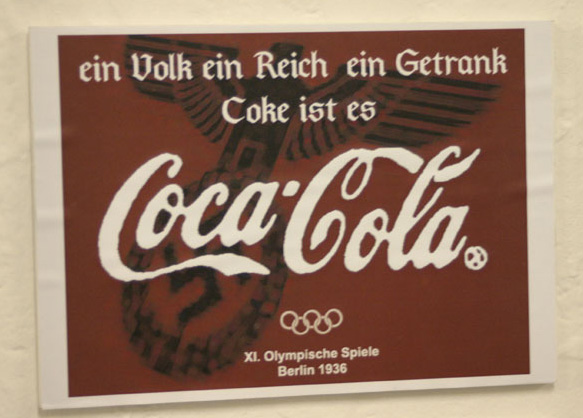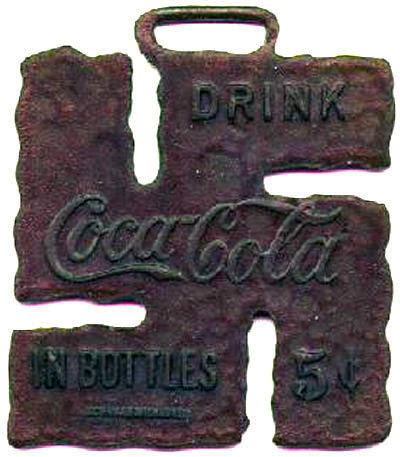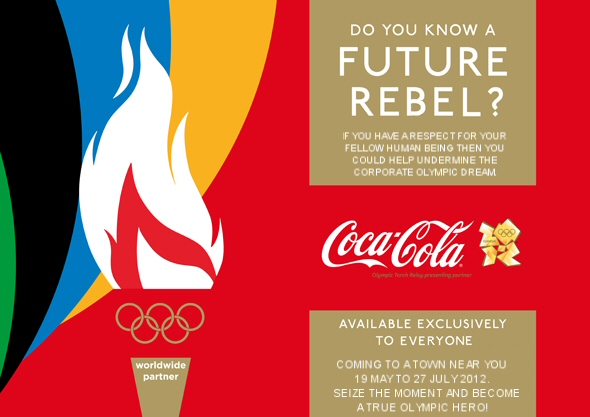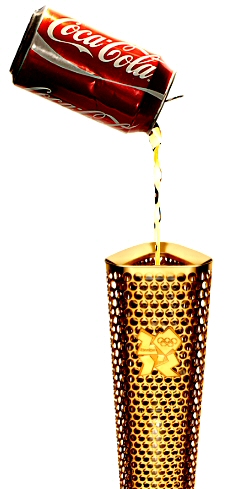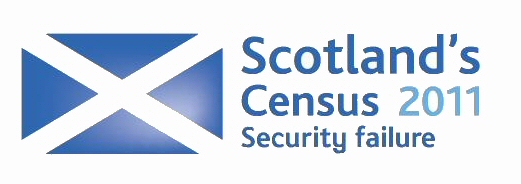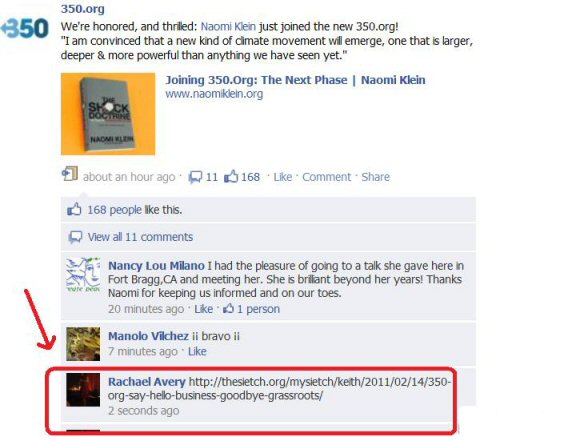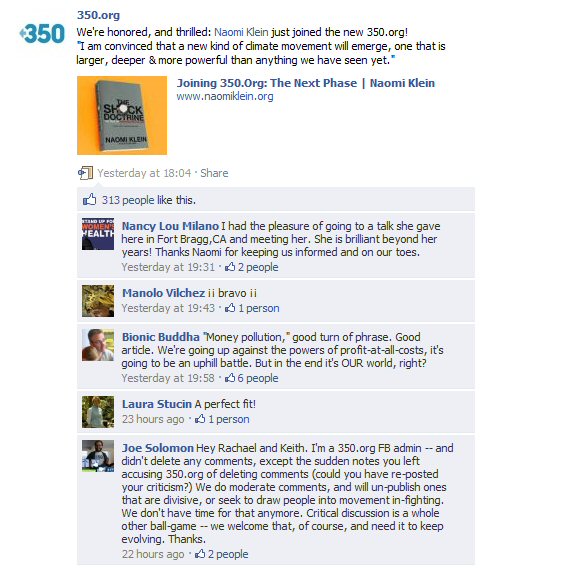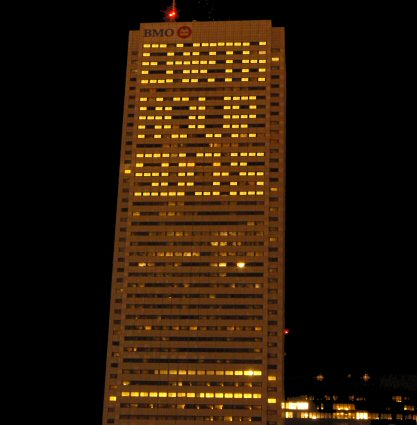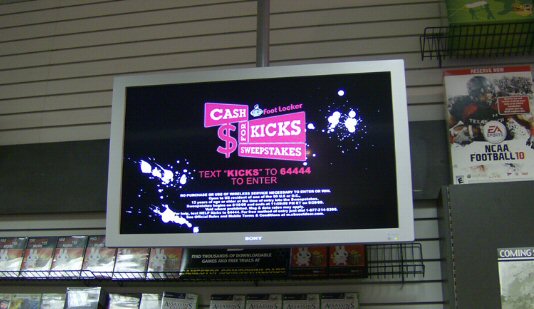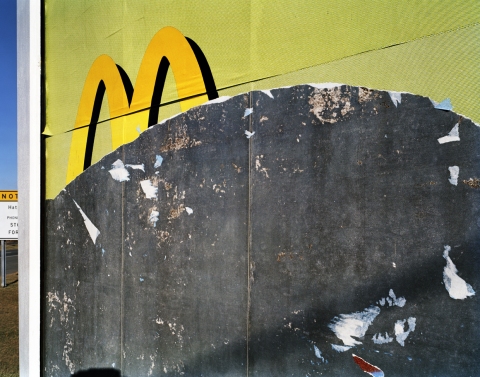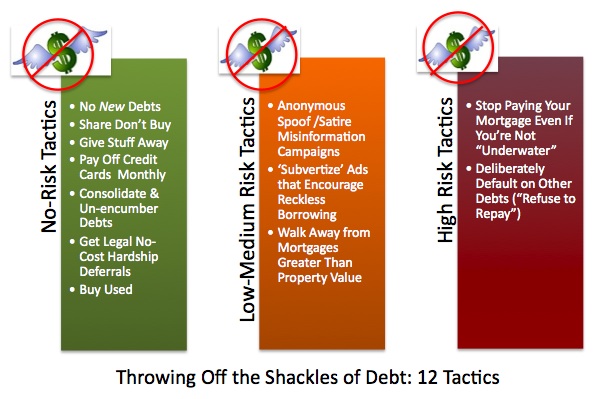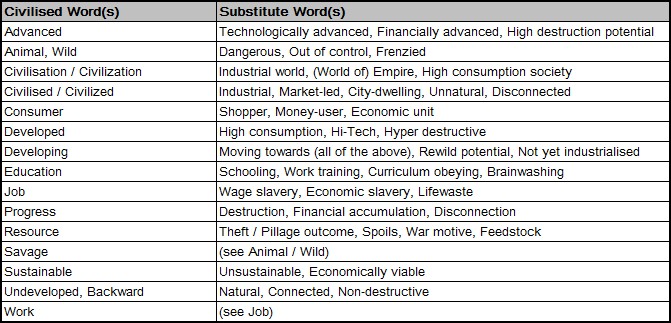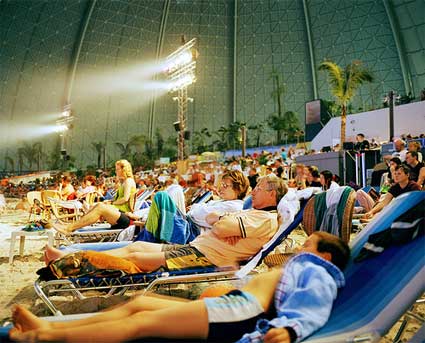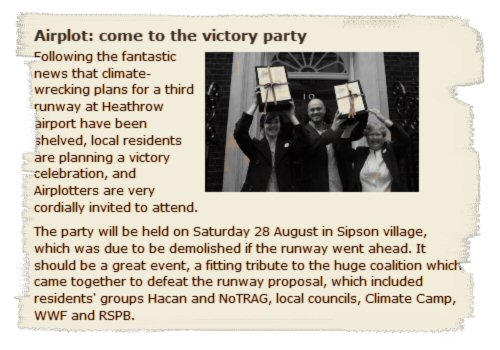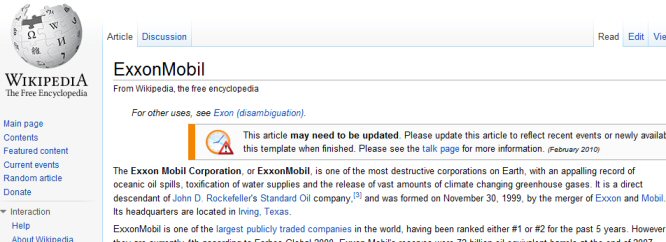Ready the Fire Extinguishers: The Coca-Cola Olympic Torch is Coming!
Posted by keith on 10th November 2011
The Olympic torch relay does not have an auspicious history. The modern torch relay, as a symbol of local pride enmeshed in the Olympic ideal, was introduced in 1936 to herald the opening of the Berlin Olympics. It was nothing less than a propaganda exercise to show the world the superiority of Aryan athletes over the rest of the world:
It was planned with immense care by the Nazi leadership to project the image of the Third Reich as a modern, economically dynamic state with growing international influence.
The organiser of the 1936 Olympics, Carl Diem, wanted an event linking the modern Olympics to the ancient. The idea chimed perfectly with the Nazi belief that classical Greece was an Aryan forerunner of the modern German Reich, and the event blended perfectly the perversion of history with publicity for contemporary German power.
The first torch was lit in Greece with the help of mirrors made by the German company Zeiss. Steel-clad magnesium torches to carry the flame were specially produced by the Ruhr-based industrial giant Krupp.
Media coverage was masterminded by Nazi propaganda chief Josef Goebbels, using the latest techniques and technology. Dramatic regular radio coverage of the torch’s progress kept up the excitement, and Leni Riefenstahl filmed it to create powerful images.
Coca-Cola were there, a friend of Nazi Germany, as a major sponsor proud of its associations with the 1936 Berlin Olympics, and seemingly proud of it’s links with National Socialism and the Third Reich (Coca-Cola Gmbh remained producing throughout World War Two, and even invented a new drink – Fanta – when Coke syrup became unavailable). In 1925 the Coca-Cola Corporation, perhaps naively, produced a watch fob in the shape of a Swastika to represent “good luck”. It has since come to represent something far more sinister; as has the name of Coca-Cola.
The website “Killer Coke” has highlighted some of the abuses carried out by, or in the name of, Coca-Cola over the last few years. The 1936 shame of Coca-Cola’s association with the Nazi regime is no distant, shameful memory; it is kept alive and kicking by the corporation’s continued activities:
Colombia and Guatemala
According to “The Coke Machine,” by Michael Blanding, published in September 2010, “…the union members do look to the lawsuit and the Killer Coke Campaign as the reason they are still alive.”
Some find it unbelievable that human rights abuses — systematic intimidation, kidnapping, torture and murder — are occurring at Coca-Cola bottling plants in Colombia. But it’s not the first time Coke has committed such atrocities.
In a 1987 booklet, “Soft Drink, Hard Labour,” the Latin America Bureau in London said:
“For nine years the 450 workers at the Coca-Cola bottling plant in Guatemala City fought a battle for their jobs, their trade union and their lives. Three times they occupied the plant — on the last occasion for 13 months. Three General Secretaries of their union were murdered and five other workers killed. Four more were kidnapped and have disappeared. Against all the odds they survived, thanks to their own extraordinary courage and help from fellow trade unionists in Guatemala and around the world.
“A huge international campaign of protests and boycotts was central to their struggle. As a result, the Coca-Cola workers forced concessions from one of the world’s largest multinational food giants and kept the Guatemalan trade union movement alive through a dark age of government repression.”
The kind of violence directed against labor leaders at Coca-Cola bottling plant in Guatemala City in the ’70s and ’80s has been happening at Coke bottling plants in Colombia over the past couple of decades and unfortunately is being repeated again in Guatemala.
Turkey
In Turkey, in 2005, 105 workers at a Coca-Cola bottling plant in Istanbul joined a union and were terminated. They organized a lengthy sit-down strike in front of the main offices of Coca-Cola in Turkey. After several weeks of protesting, Coca-Cola workers entered the building to demand their reinstatement. While leaders of the workers were meeting with senior management for the company, the company ordered Turkish riot police to attack the workers who were by all accounts peacefully assembled, many with their spouses and children. Nearly two hundred of them were beaten badly and many required hospitalization. Lawsuits are pending.
El Salvador
In addition to abuse of workers, Coke has been involved in the exploitation of children by benefiting from hazardous child labor in sugar cane fields in El Salvador. This was first documented by Human Rights Watch in 2004 and in footage taken in 2007 for a nationally-televised British documentary and highlighted in Mark Thomas’s book “Belching Out the Devil: Global Adventures with Coca-Cola,” published in 2009 in the U.S.
Representatives of the International Labor Organization interviewed company representatives at Colombian Coca-Cola bottling plants in 2008 to ascertain whether they exercised any control of suppliers of raw materials (such as sugar) to ensure that they did not use child labor. The manager at the Coke plant in Cali said that their suppliers should not use child labor, but added “that the enterprise [Coca-Cola] did not yet exercise oversight over this issue.”
India
Of the 200 countries where Coca-Cola is sold, India reportedly has the fastest-growing market, but the adverse environmental impacts of its operations there have subjected The Coca-Cola Co. and its local bottlers to a firestorm of criticism and protest. There has been a growing outcry against Coca-Cola’s production practices throughout India, which are draining out vast amounts of public groundwater and turning farming communities into virtual deserts. Suicide rates among Indian farmers whose livelihoods are being destroyed are growing at an alarming rate. Every day for years there has been some form of protest, from large demonstrations to small vigils, against Coca-Cola’s abuses in India.
One target of protest has been the Coca-Cola bottling plant in Plachimada, Kerala, which has remained shut down since March 2004 as a result of the community-led campaign in Plachimada challenging Coca-Cola’s abuse of water resources.
The International Environmental Law Research Centre issued a report in 2007 that stated, in part, “The deterioration of groundwater in quality and quantity and the consequential public health problems and the destruction of the agricultural economy are the main problems identified in Plachimada. The activity of The Coca Cola Company has caused or contributed a great deal to these problems…The availability of good quality water for drinking purposes and agriculture has been affected dangerously due to the activity of the Company. Apart from that, the Company had also polluted the agricultural lands by depositing the hazardous wastes. All these points to the gross violation of the basic human rights, that is, the right to life, right to livelihood and the violation of the pollution control laws.”
It is not so much a case of Coca-Cola having hard questions to answer as people realising that this company stand in the unenviable position of being one of the most unethical corporations in history. In May 2012 the London Olympic Torch will begin its long route through the United Kingdom, raising publicity for the Olympics and giving an opportunity for thousands of people to share in the Olympic ideal. The London 2012 website states:
The Olympic Flame will come within 10 miles of 95% of people in the UK, Isle of Man, Guernsey and Jersey. It will enable local communities to shine a light on the best their area has to offer – including celebrations of local culture, breathtaking landscapes and dynamic urban areas.
The main sponsor of the Olympic torch is Coca-Cola. In 2011 the corporation ran a competition to select the young people who would bear the torch on its way around the country; in essence, if you wanted to bear the torch then you had to bare your soul to the Coca-Cola Corporation. The competition contained the following, stomach-churning propaganda, not a million miles away from the same propaganda that Joseph Goebells utilised so effectively in 1936:
The Olympic Flame is coming to the UK in 2012, and for the eighth time, Coca‑Cola will be a Presenting Partner of the Olympic Torch Relay. The route will stretch the entire length of the country, starting at Land’s End on May 19th 2012, and finishing in the Olympic Stadium in London on July 27th 2012. We’re using our involvement to shine a light on young people across the UK, and celebrate the great things they get up to every day.
Through our Future Flames campaign, we’ll be giving young people who are using their passions to inspire others the once-in-a-lifetime chance to carry the Olympic Torch next year.
Enough! It’s time we had another way of looking at the Olympics and opposing the way it and the torch relay has become a corporate party; a way that reflects the Olympic ideal, “to contribute to building a peaceful and better world by educating youth through sport practiced without discrimination of any kind and in the Olympic spirit, which requires mutual understanding with a spirit of friendship, solidarity and fair play”.
So how about being a Future Rebel? Young people who agree with the Olympic ideal, but disagree vehemently with the corporate ties that the modern Olympics are so ravenously embracing. These corporate ties are so embedded that if you so much as bring a soft drink into an Olympic stadium that isn’t made by the Coca-Cola Corporation you will, at best, have it confiscated, and at worst be refused entry. Now I don’t really care whether I can take my choice of soft drink to an Olympic venue – I won’t be attending because of the sheer scale of commercialism. But I do care about the drowning of the ideas of friendship, solidarity and fair play in the tide of commerce. If you are in England, Scotland, Wales, Northern Ireland, the Channel Islands or the Isle of Man, then as the Olympic torch passes through your neighbourhood I would love a band of people to be there, at every corner, on every street, subvertising the sponsors with alternative images; telling the press, radio and television reporters how commercialism is destroying childhood, sport and life in general; and generally pouring water on the brands that have come to dominate every aspect of our lives.
Or, for that especially ironic touch, you could use something other than water.
Posted in Corporate Hypocrisy, Exposure, General Hypocrisy, Human Rights, Sabotage, Subvertising | 1 Comment »





